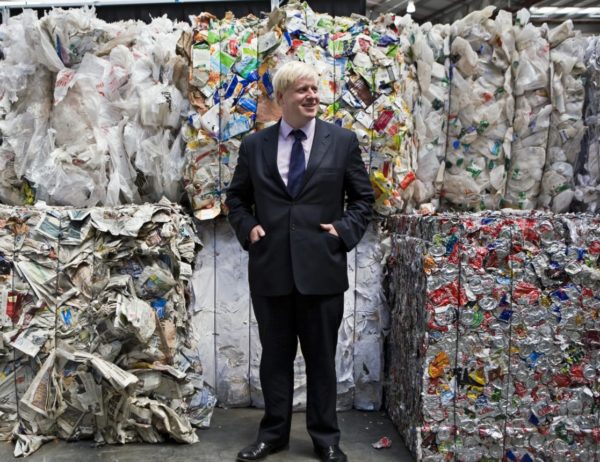Unearthed today: Boris goes green… maybe

Morning!
I’m reading about… the UK’s ‘reboot’.
But first, the present. “The government has awarded £1.5bn of taxpayers’ money to companies linked to the Conservative Party during the coronavirus pandemic. None of the firms were prominent government suppliers before this year,” according to a Sunday Times investigation.
The investigation details how contracts and senior roles were handed out without process to firms and individuals with close and financial links to the party. Firms not only benefited from contracts but from intel not shared with the wider public – including the timing of lockdowns and their planned duration.
This emerging ‘chumocracy’, alongside the related abysmal levels of competence (you remember the new testing lab due in October? yeah, that didn’t happen) don’t bode well for the ‘next big thing’ – a big push on climate change. Maybe.
The post-Cummings ‘reboot’ is the subject of much speculation in Tory circles right now. In Conservative Home 2019 manifesto co-author Rachel Wolf argues Boris has to choose which way he wants to go.
Either he can push hard for the ‘just about managing’ of the Northern towns and city suburbs (the Cummings strategy), or he can go for the old Tory vote in the affluent south (the Cameron strategy). But he can’t – she argues – do both. There simply isn’t the political space – or the money.
The way she frames it, keeping to the Cummings course requires a lot of spending. Spending on towns, crime, public services and yes – many environmental benefits too like busses, charging infrastructure and job creation in greener industries. That goes alongside a renewed focus on immigration.
The alternative is to flip back to Cameroonism. Less of the spending, more of the liberalism, pro-business regulations and taxes – environmental priorities expressed through cycle lanes and international development. He can pick one or the other – but doing both will just result in a muddle and no core vote, she argues.
The Telegraph has a simpler idea. On the even of the PM’s big climate speech – where he is due to bring forward a ban on the sale of petrol and diesel cars to 2030 (except, only kinda, hybrids keep on til 2035) the Telegraph argues he’s getting it all wrong.
Things need to be kept “within the bounds of practicality… the latest deadline is even more unrealistic and there seems no obvious point to it other than to burnish Mr Johnson’s eco-credentials.”
It’s not quite “ditch the green crap” so much as “stop talking about it and don’t spend any money”. Instead, focus on the culture war, the thing that really matters here and which, after all, doesn’t raise tricky questions about spending, capital gains tax and all that sort of thing.
Boris needs to “double down.. on the disruptive elements, too: cracking down on crime, human rights and immigration reform, and the rest.
It must not mean caving into the woke crowd or elevating the green agenda as his primary mission… Crucially, there needs to be a clearer, pro-growth economic policy inspired by supply-side economics. The country is spending too much and cuts are needed in many (but not all) areas.” I don’t think busses and charging points will make the cut.
Why am I writing about all this? Because it provides context for arguments like this one; a row between No. 10 (who-ever that is nowdays) and the Treasury over whether there will be any actual cash for the green stuff. At least beyond this year.
A report by the Office for Budget Responsibility, long (mis)used to justify austerity, is expected to say the deficit will be close to £400bn, or 20% of GDP, once all the costs of tackling the virus are totted up.
And then there’s where we started, the competence issue. Kate Jennings has an excellent thread on Twitter about why expanding the number of national parks – the latest green announcement – isn’t especially exciting given national parks as they currently exist protect very little.
And The Guardian highlights two glaring misses in government policy when it comes to plastics – once the darling of Boris’s environmental ambitions.
As it is the UK stands alongside the US in failing to sign a new global treaty on plastic waste. Coincidentally – we are the second biggest producer of such waste, alongside our American friends.
Meanwhile, a government consultation that could force companies to publish details of how much food they waste has been delayed until next year.

